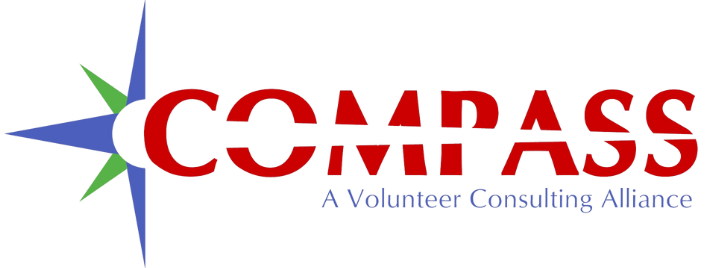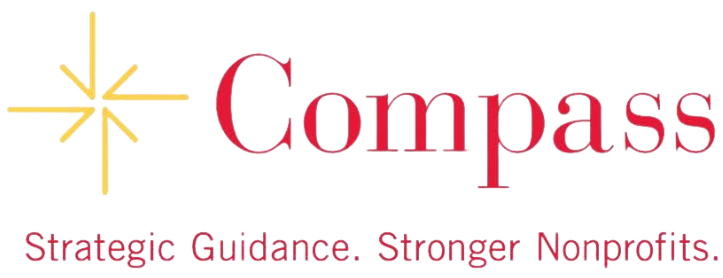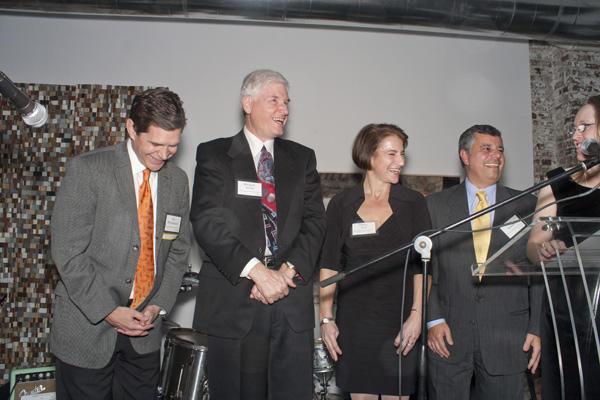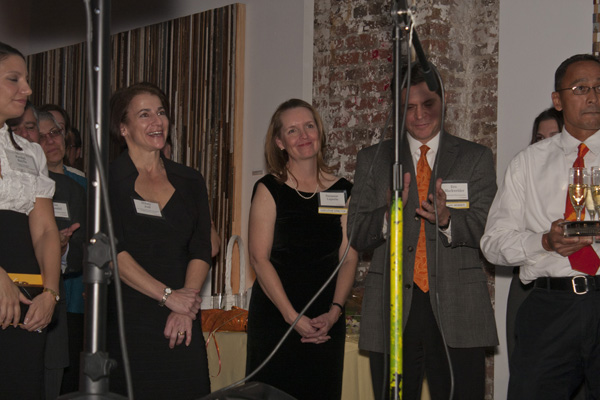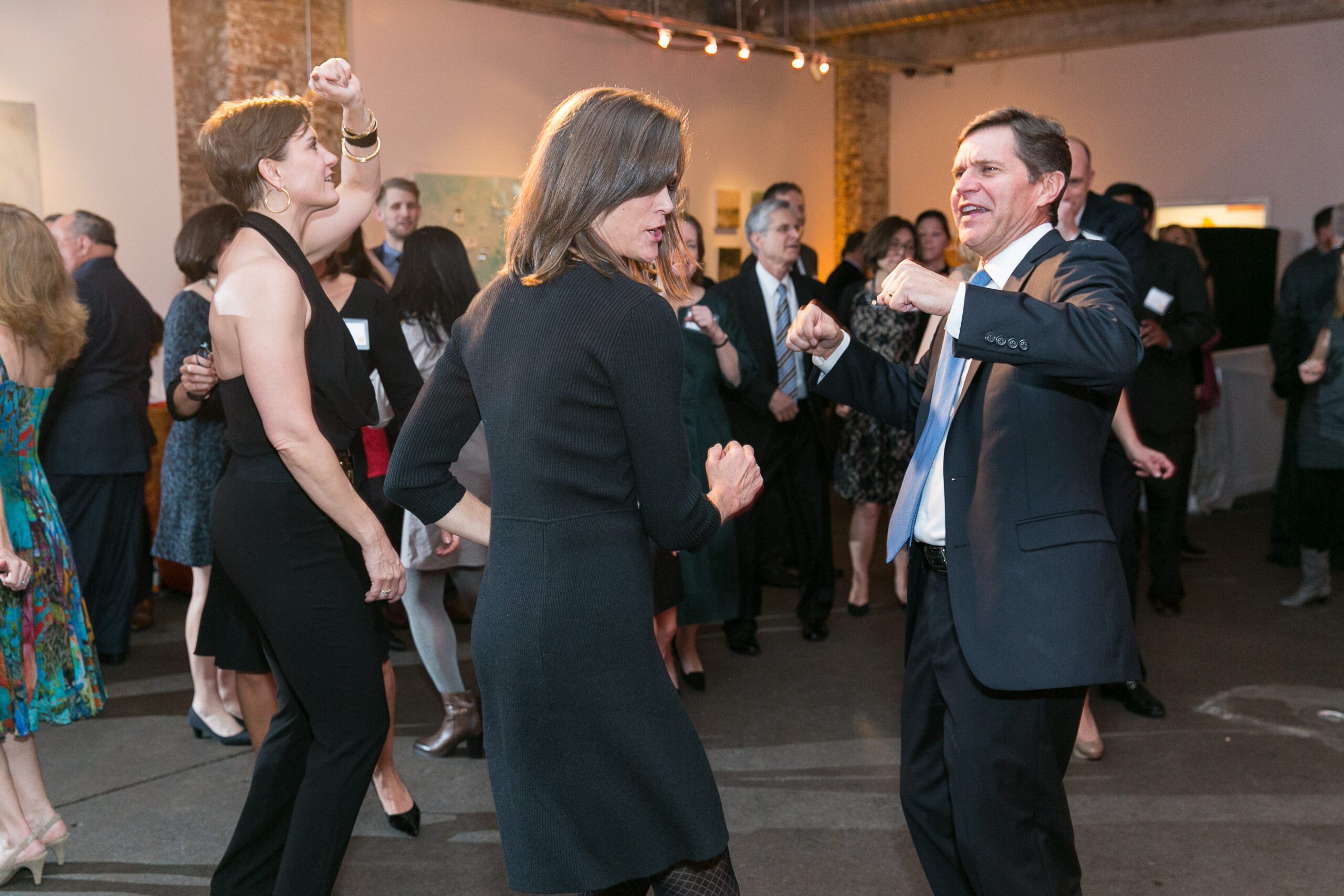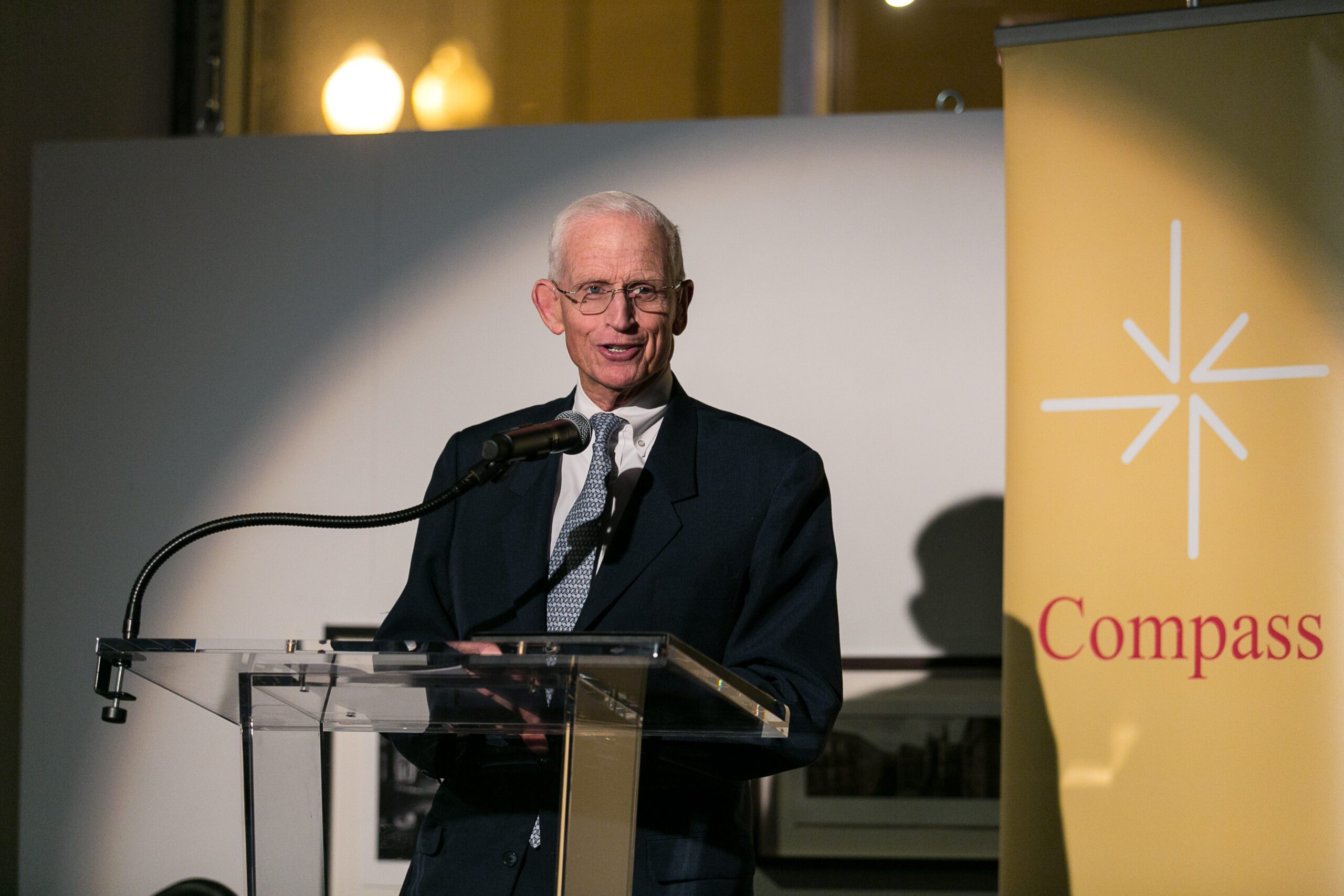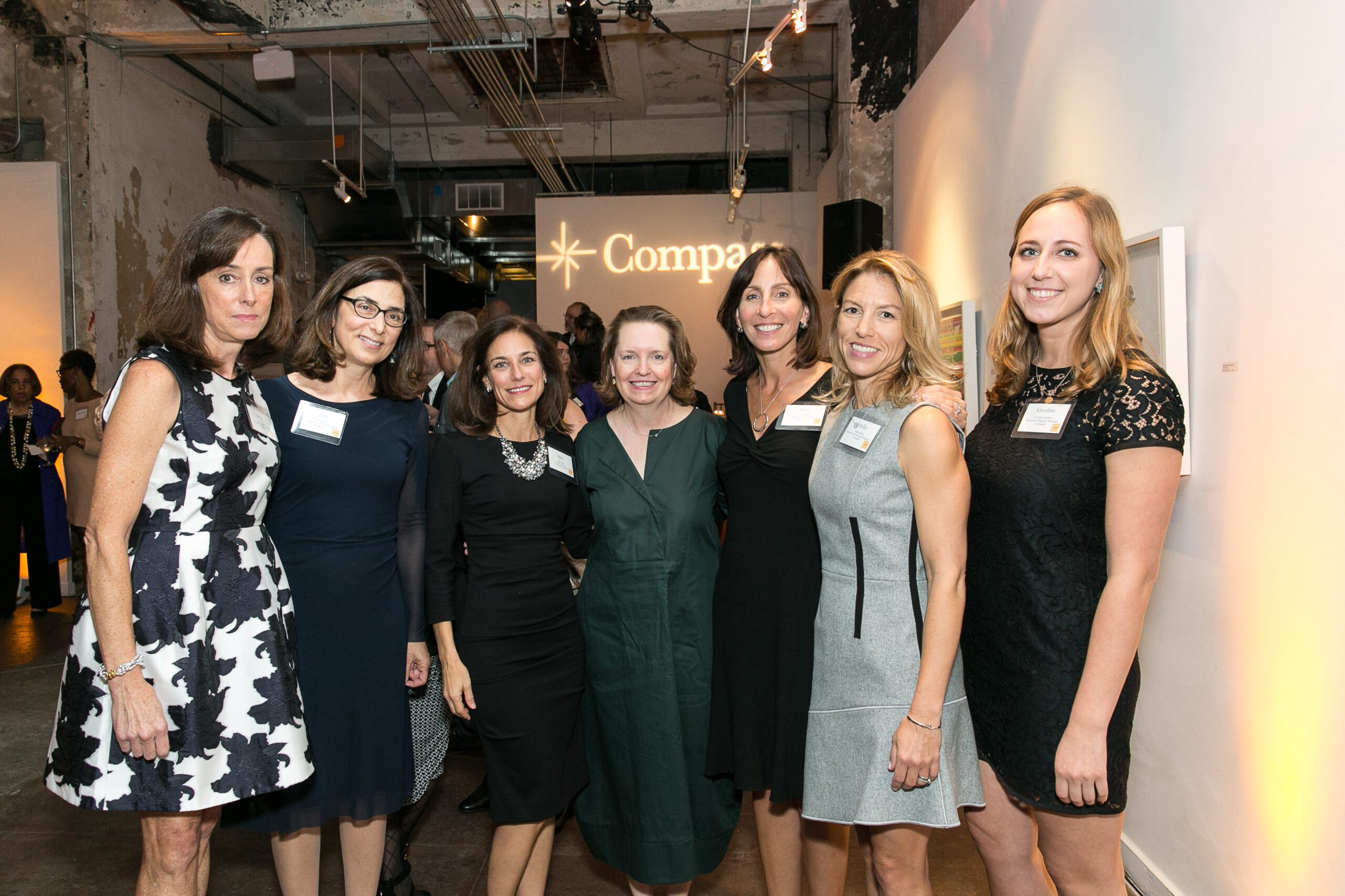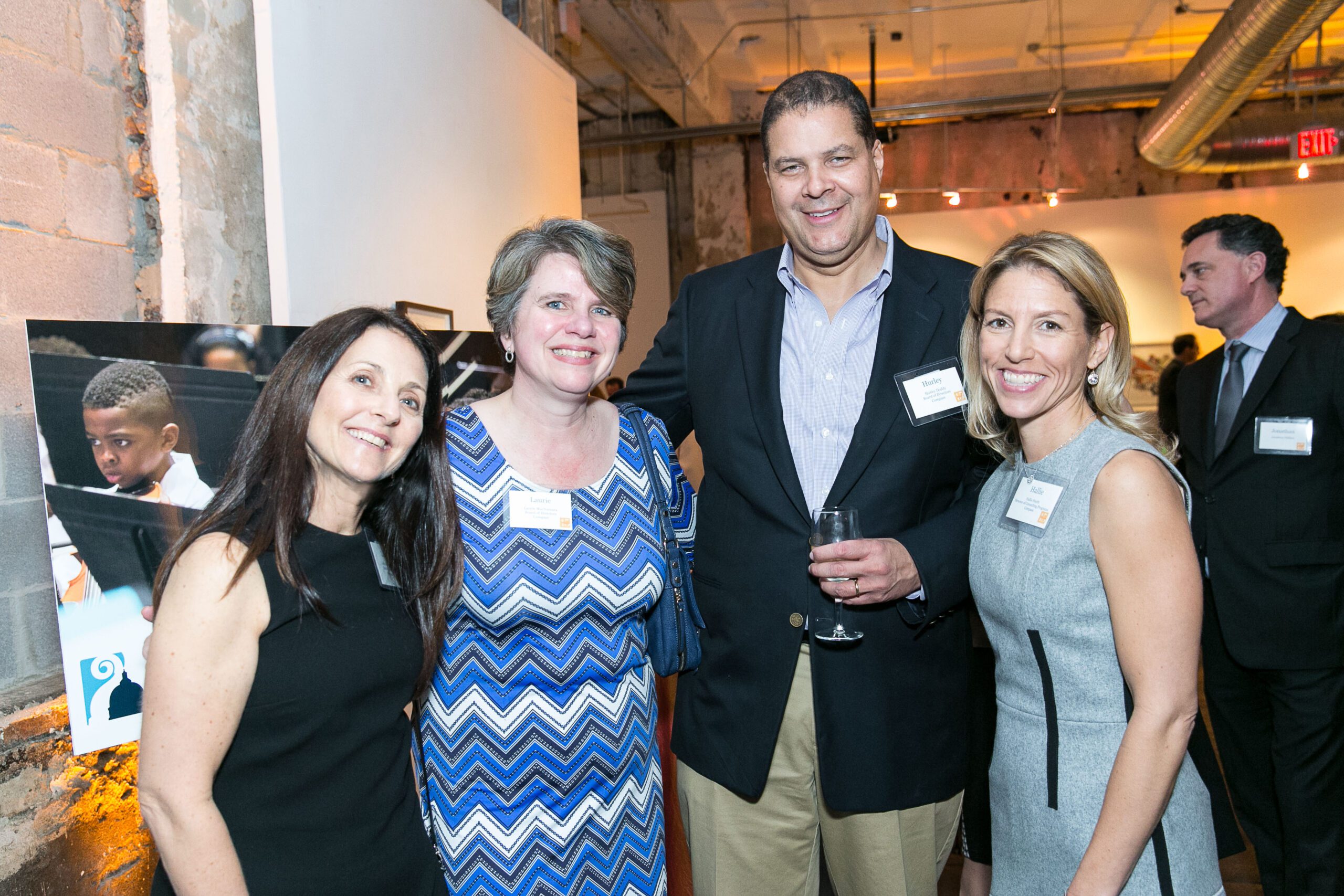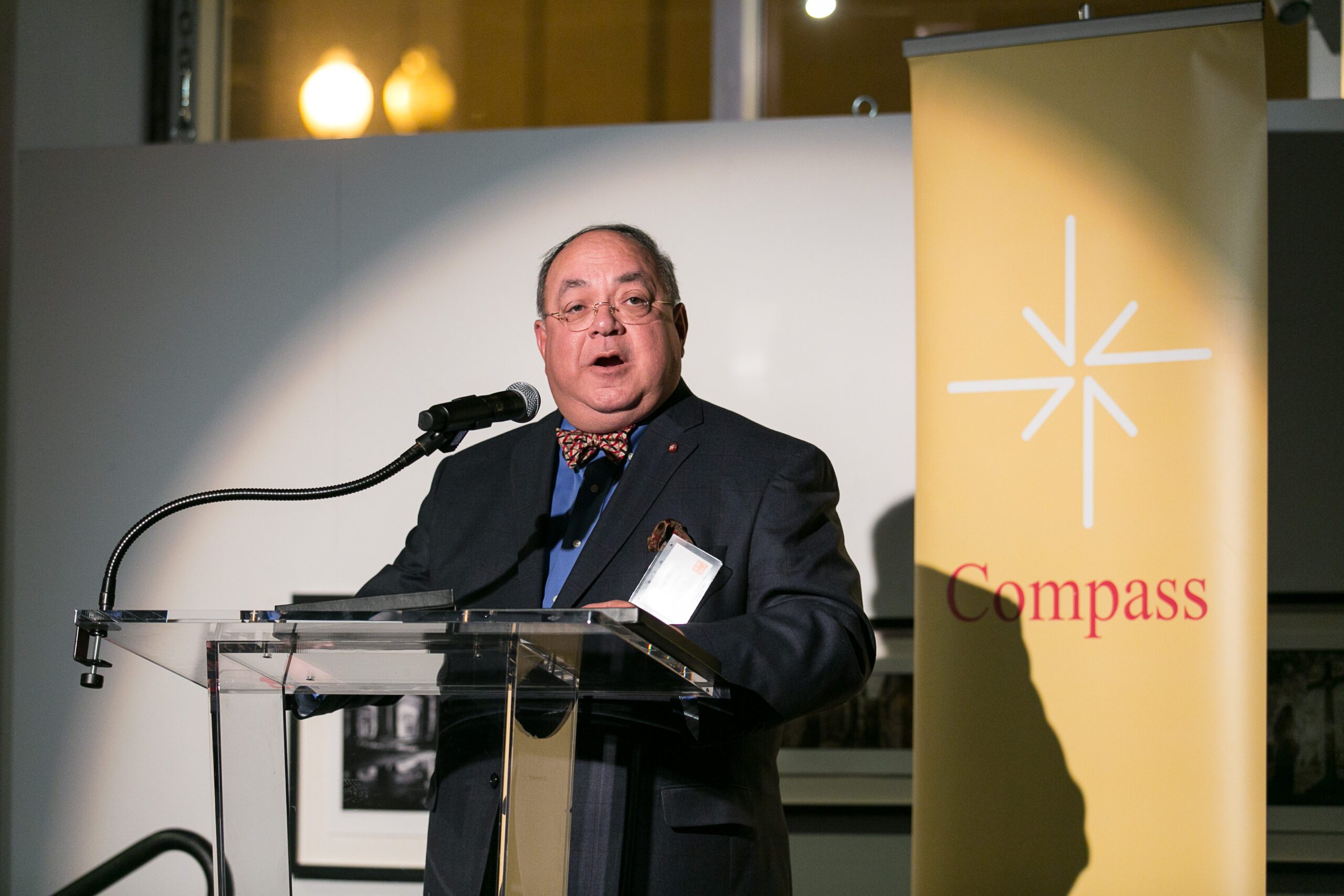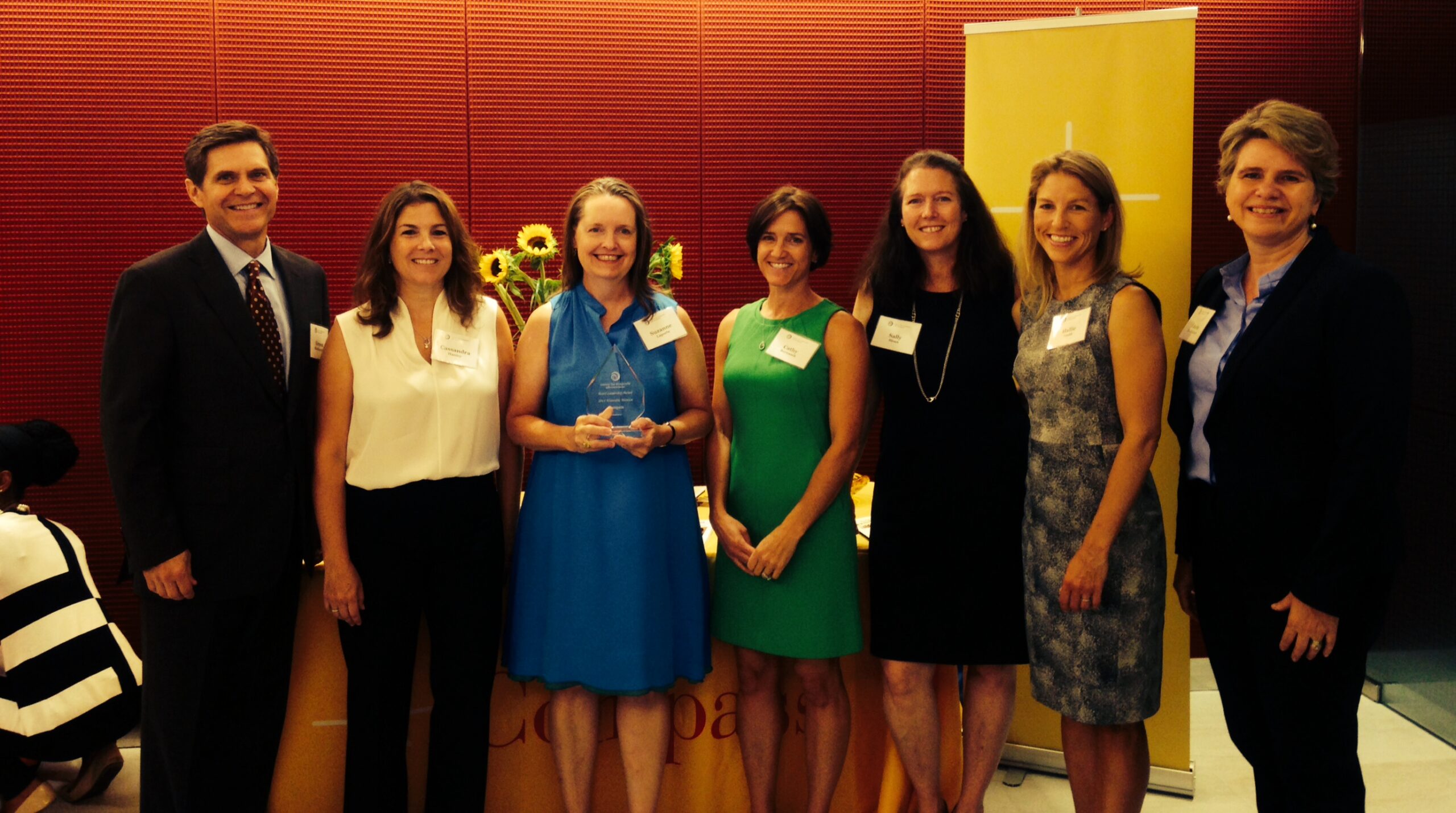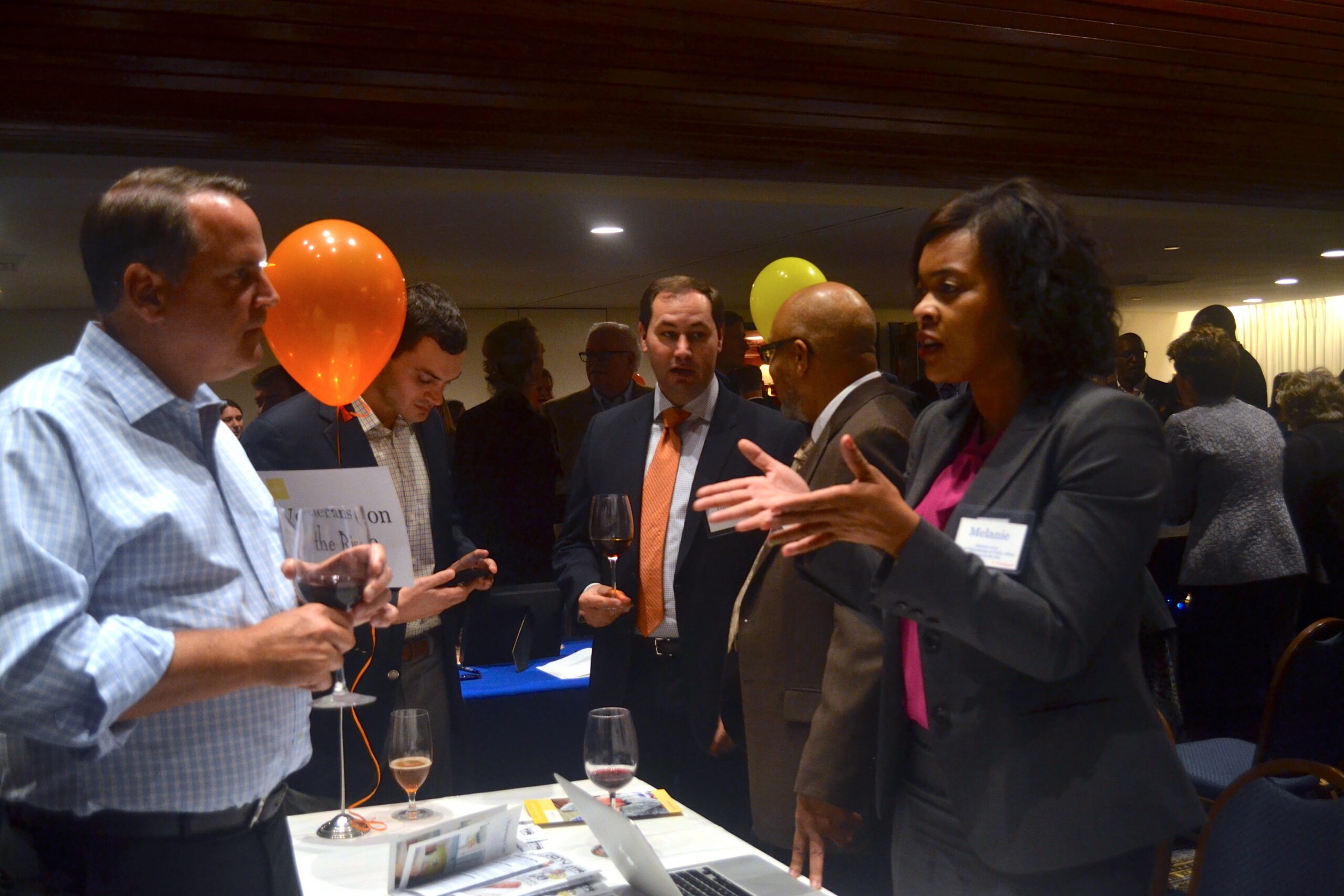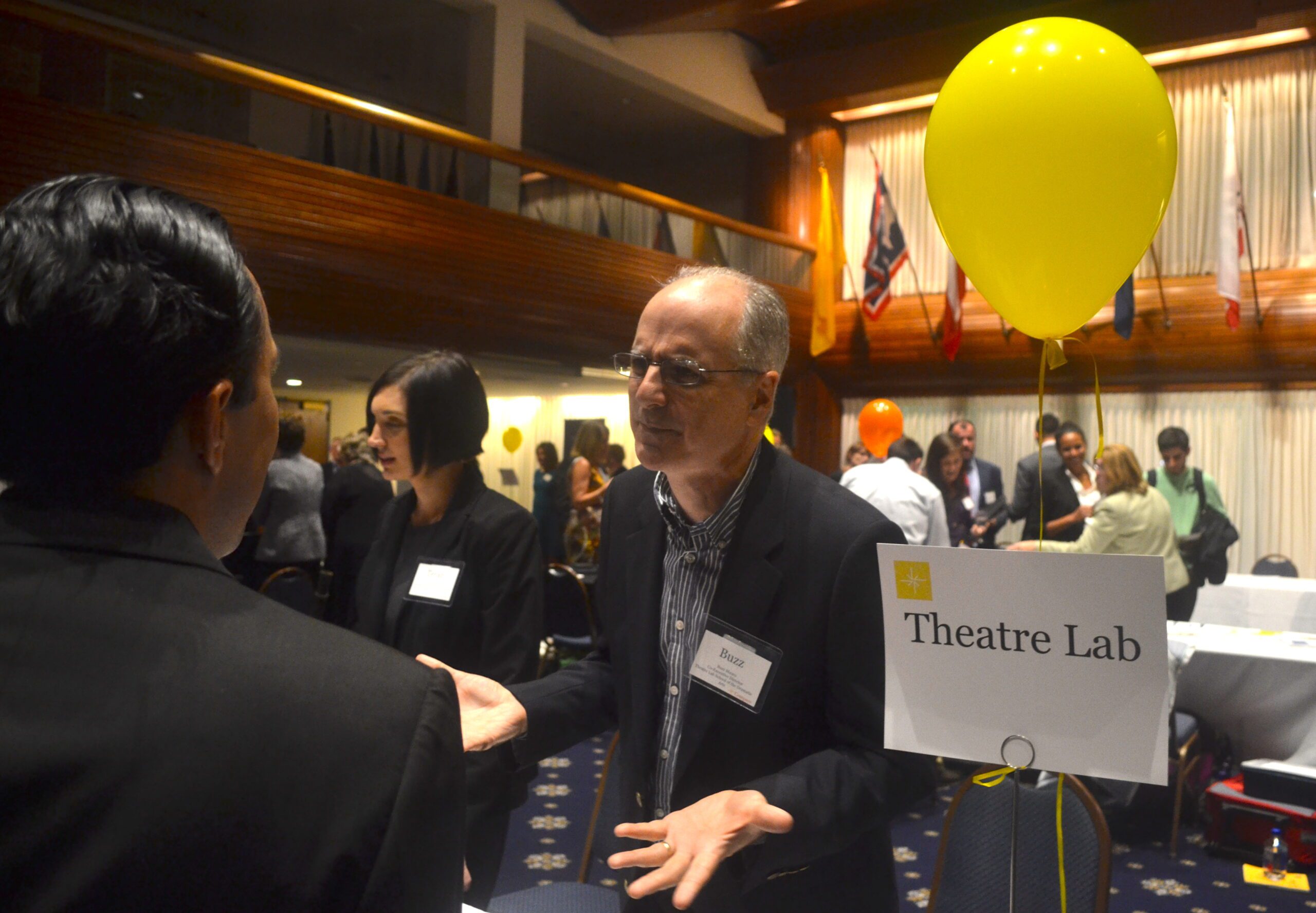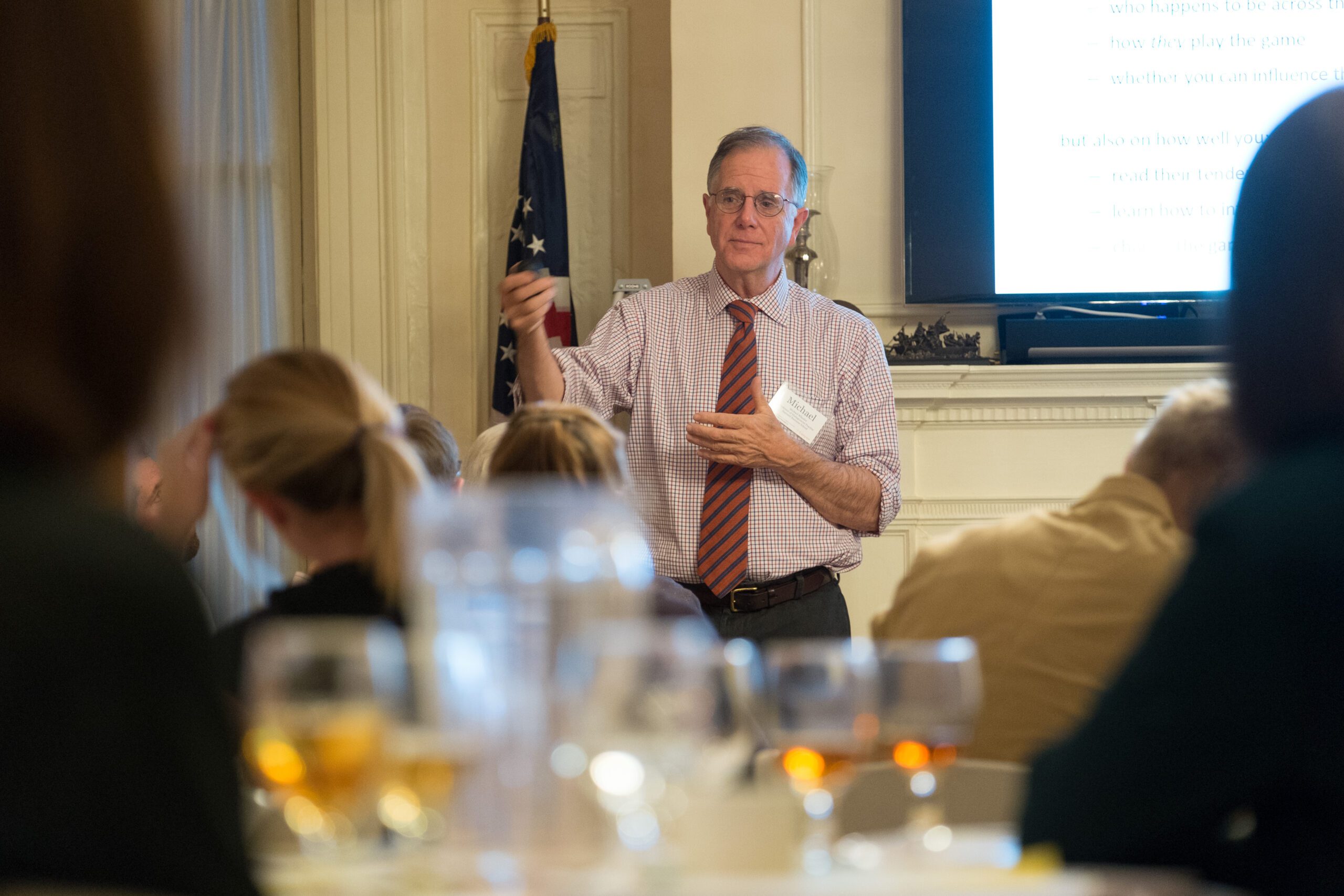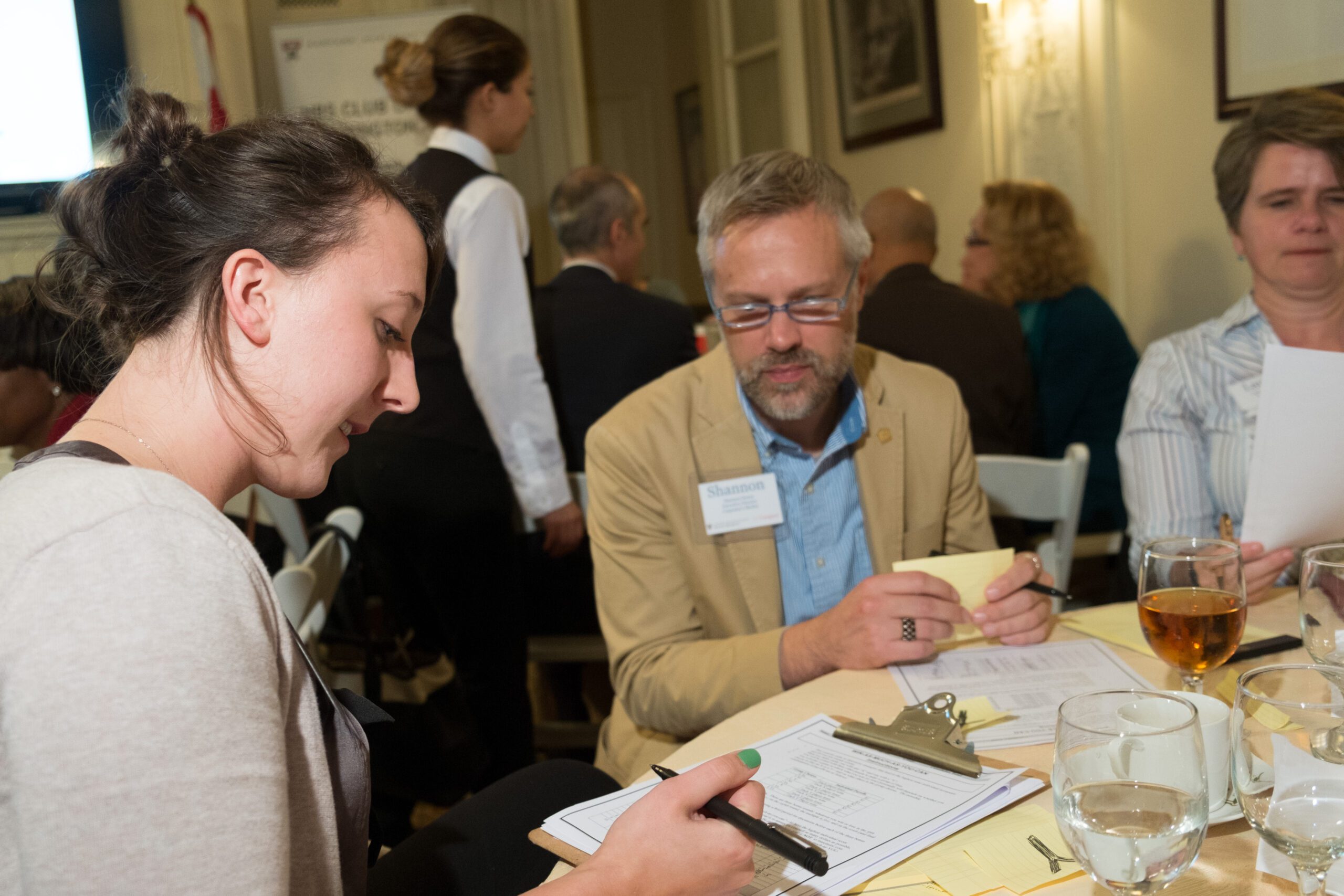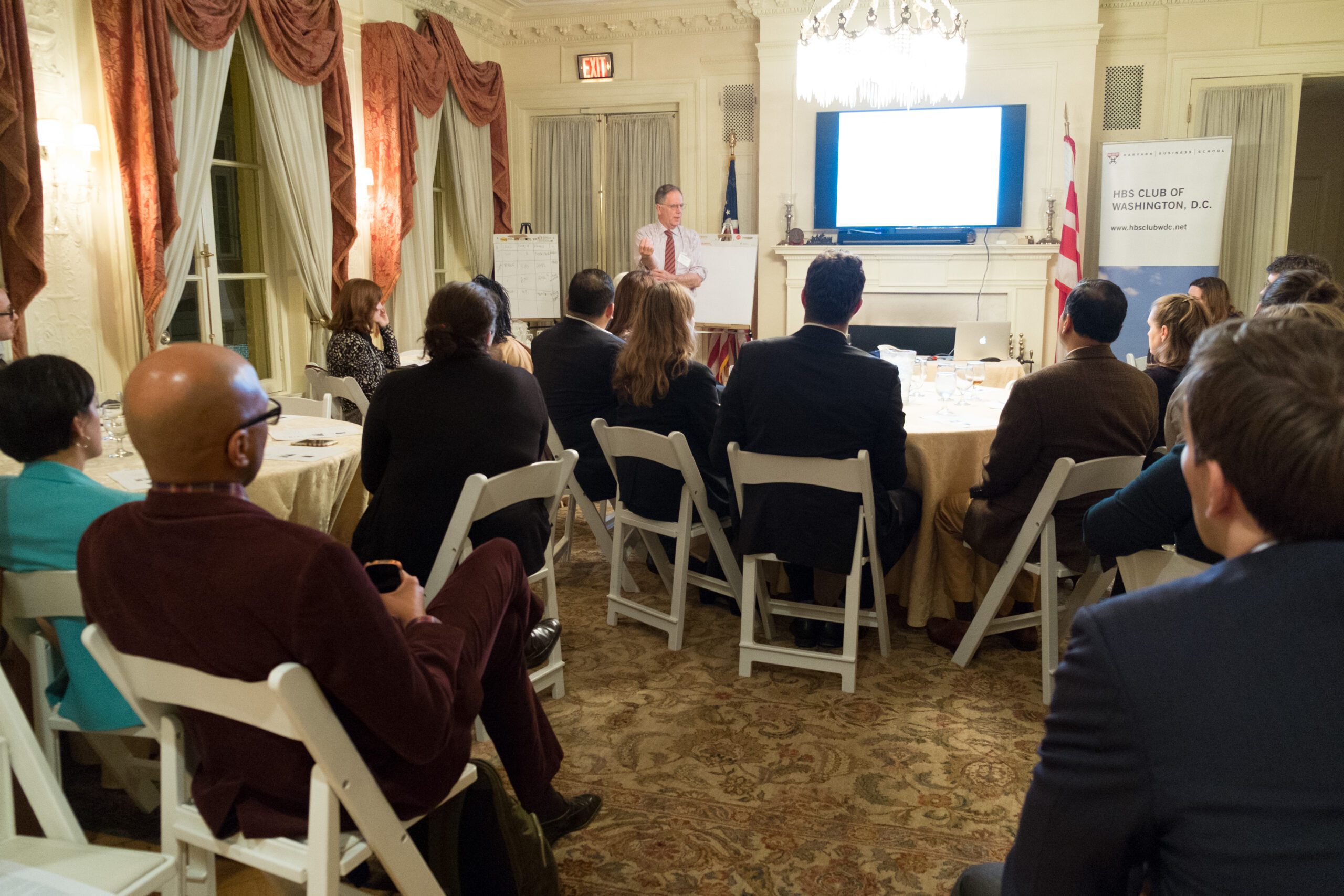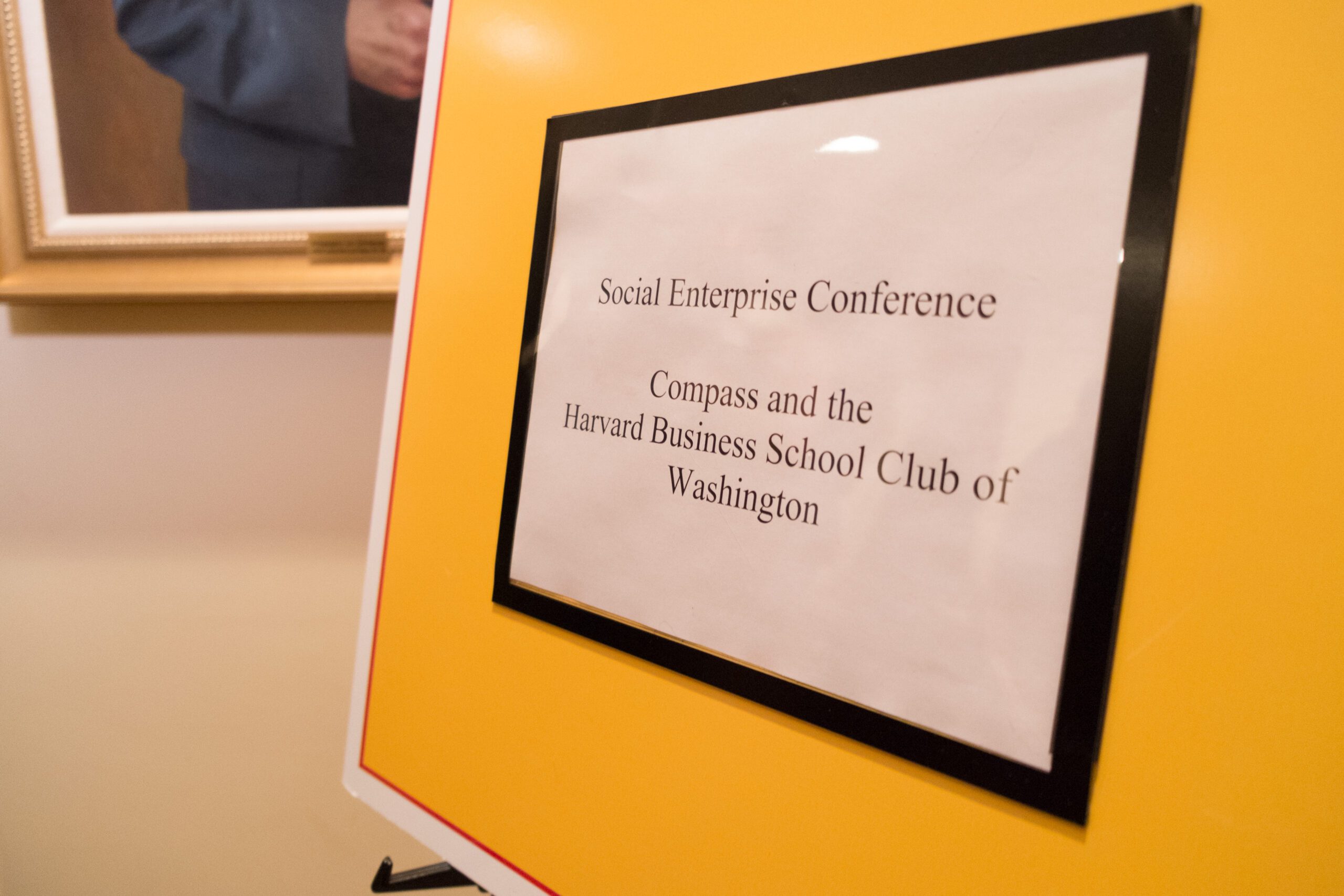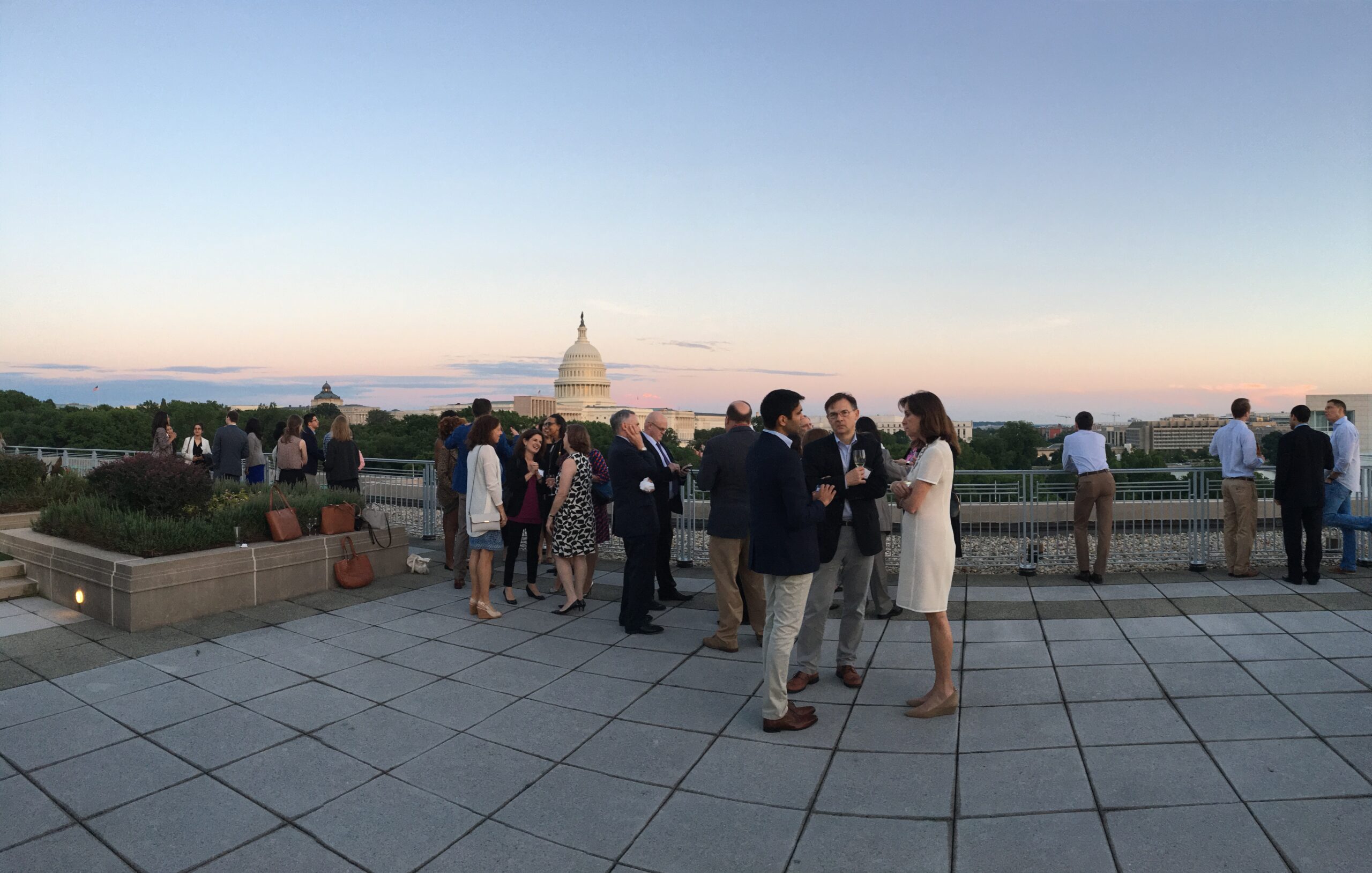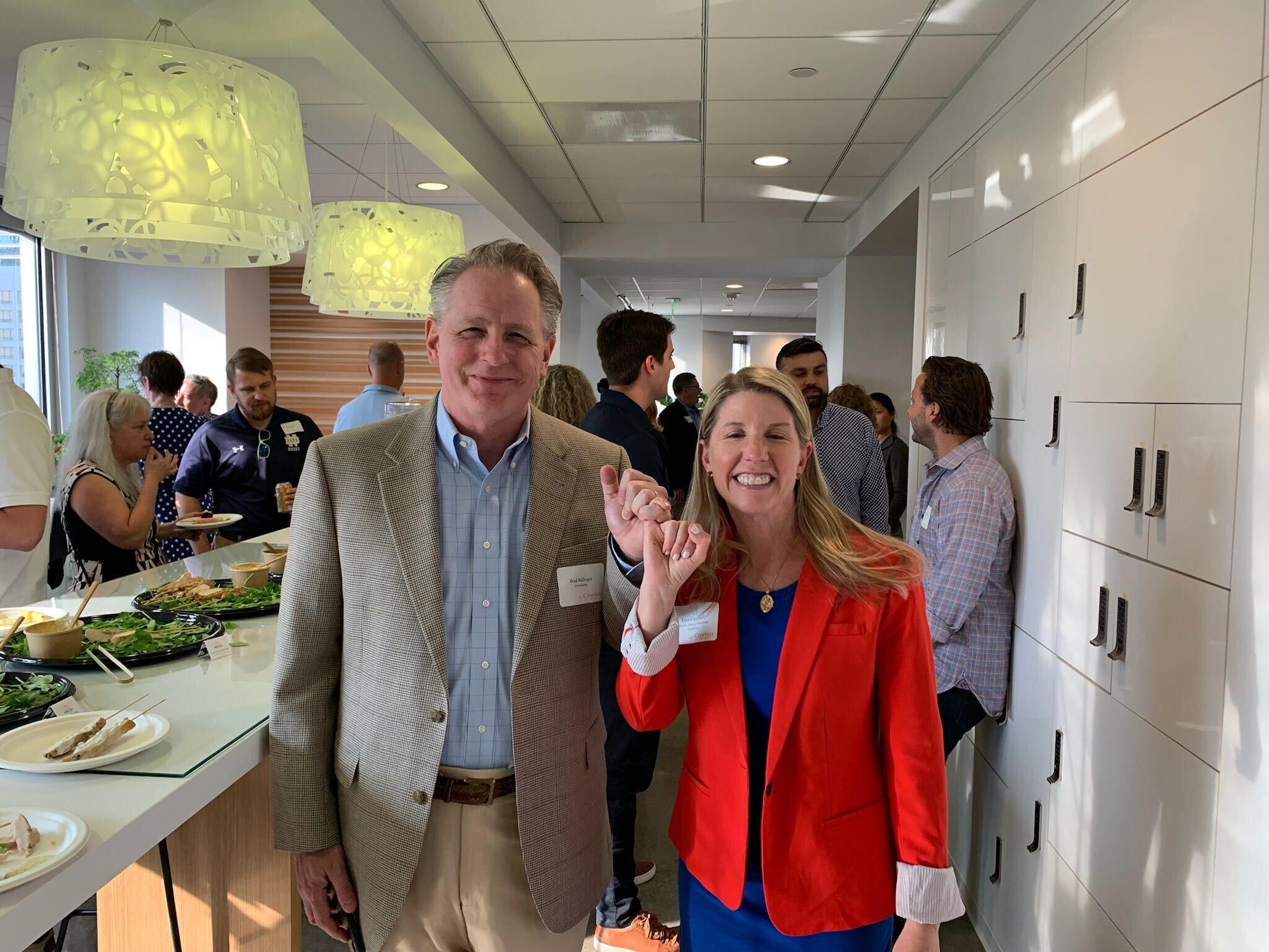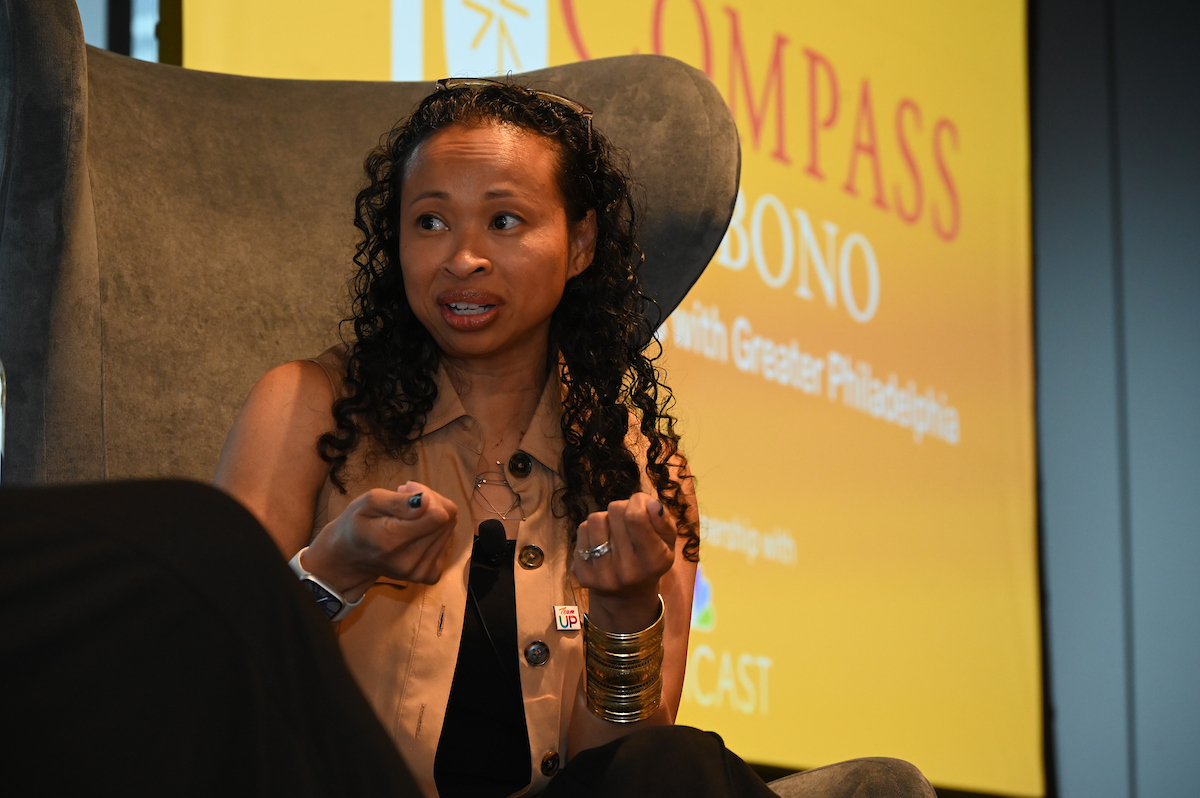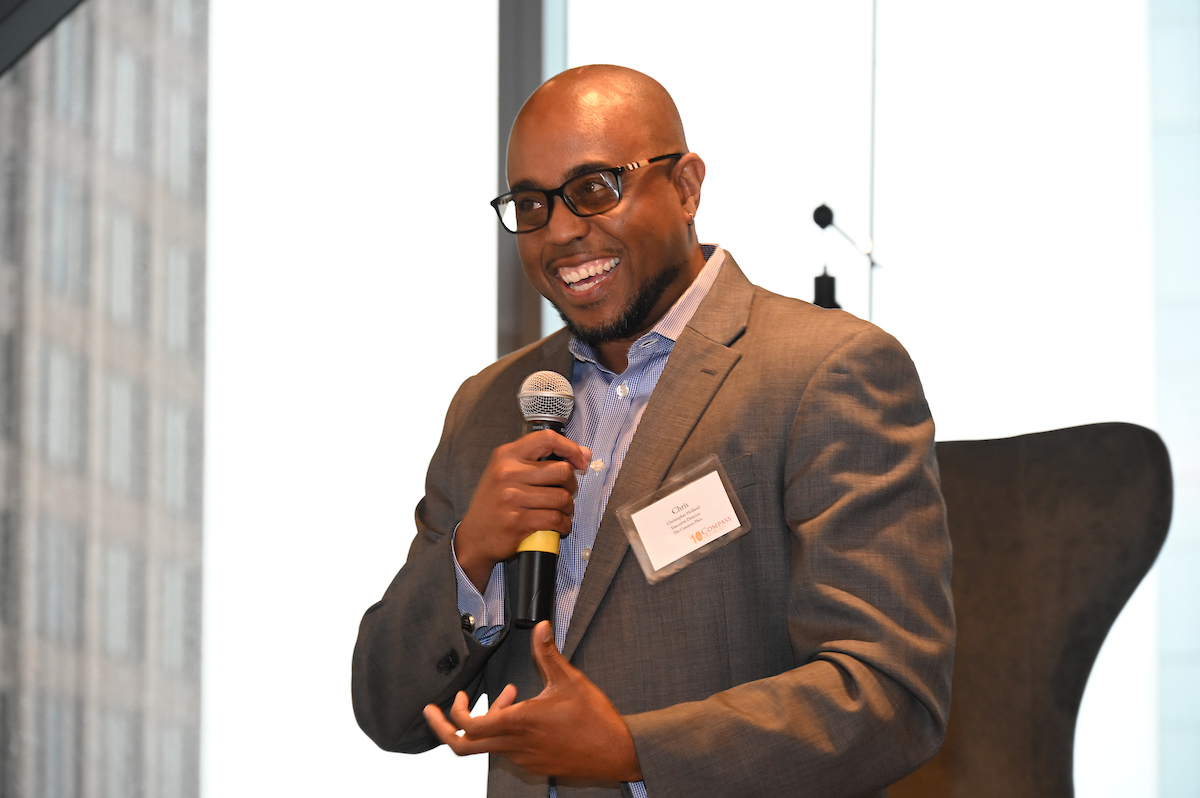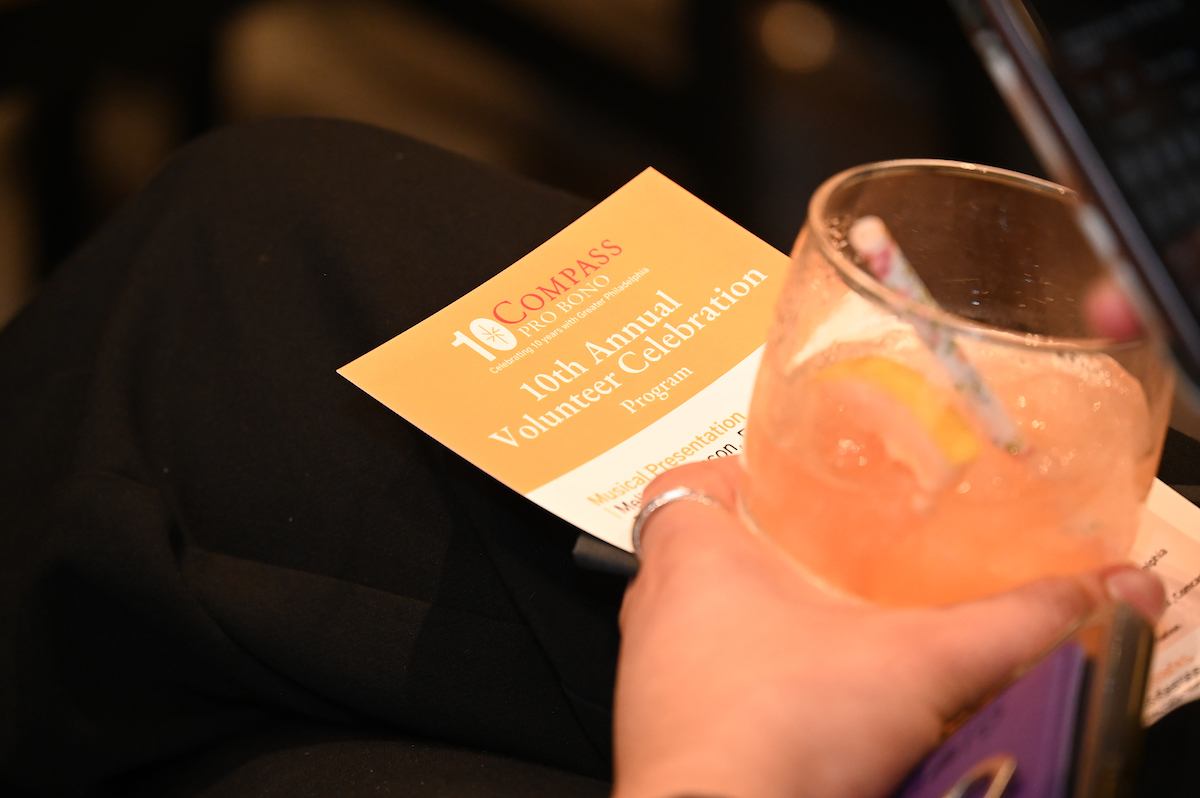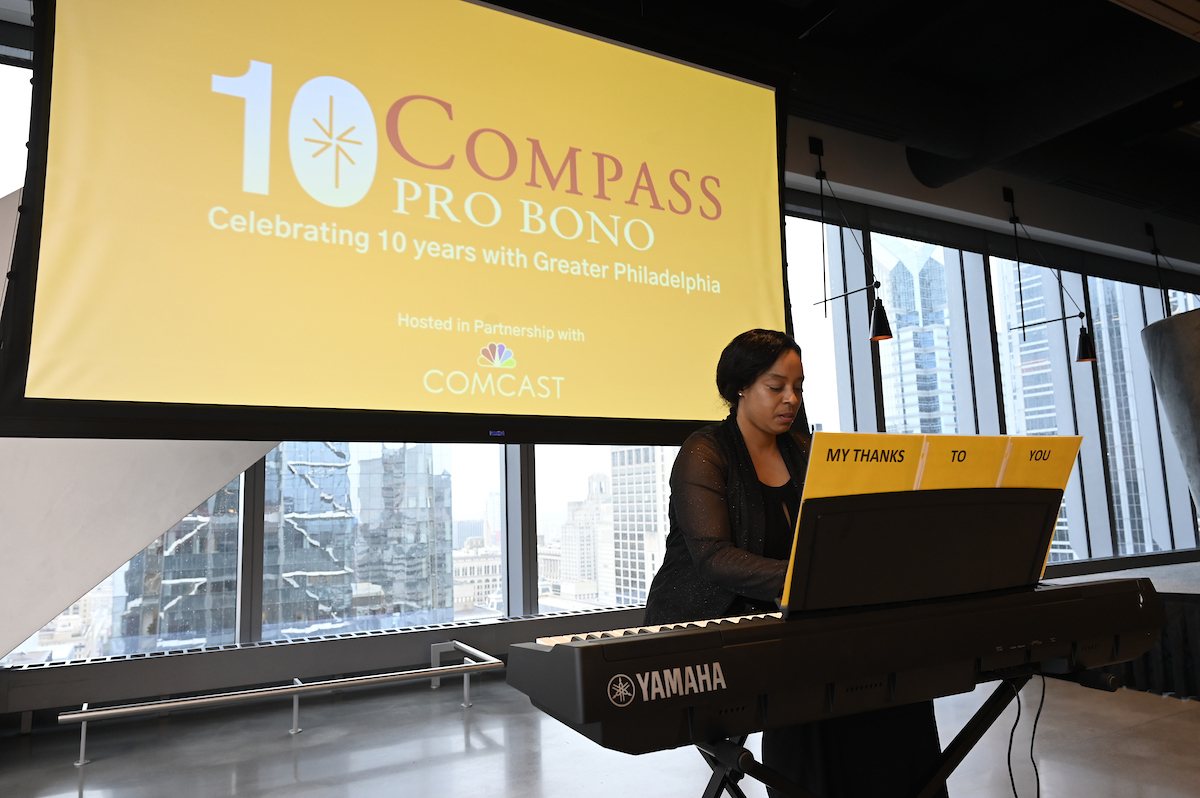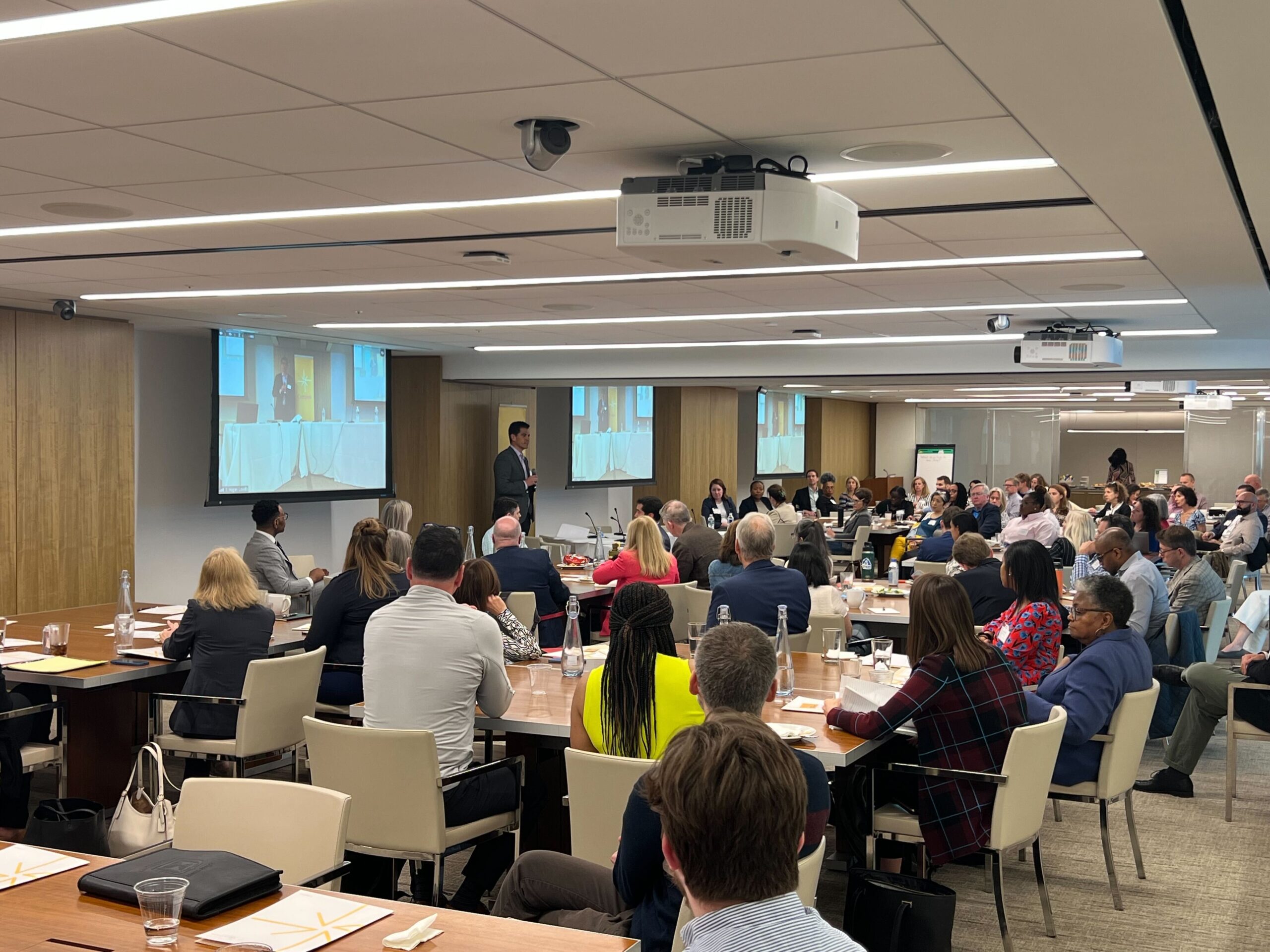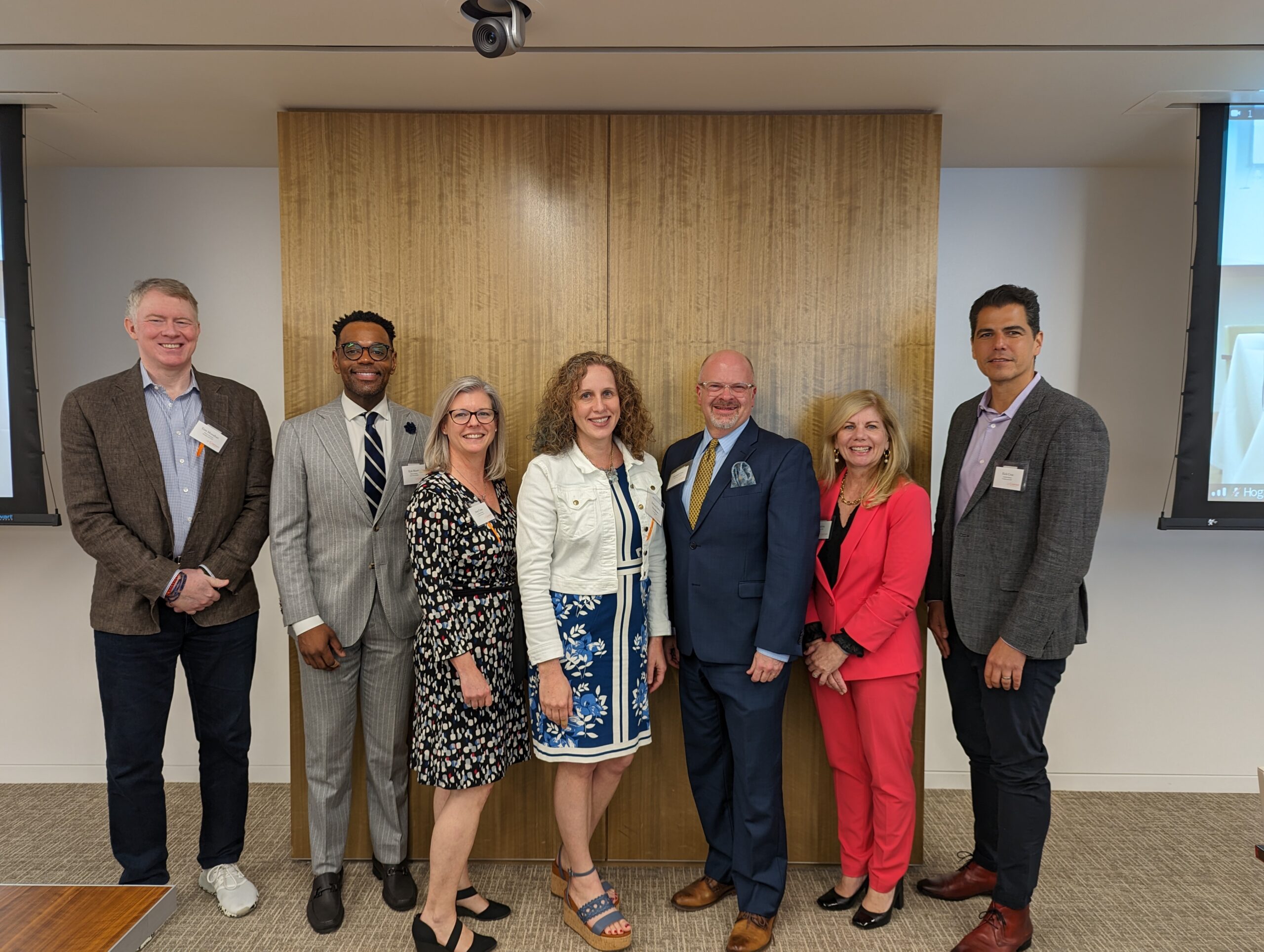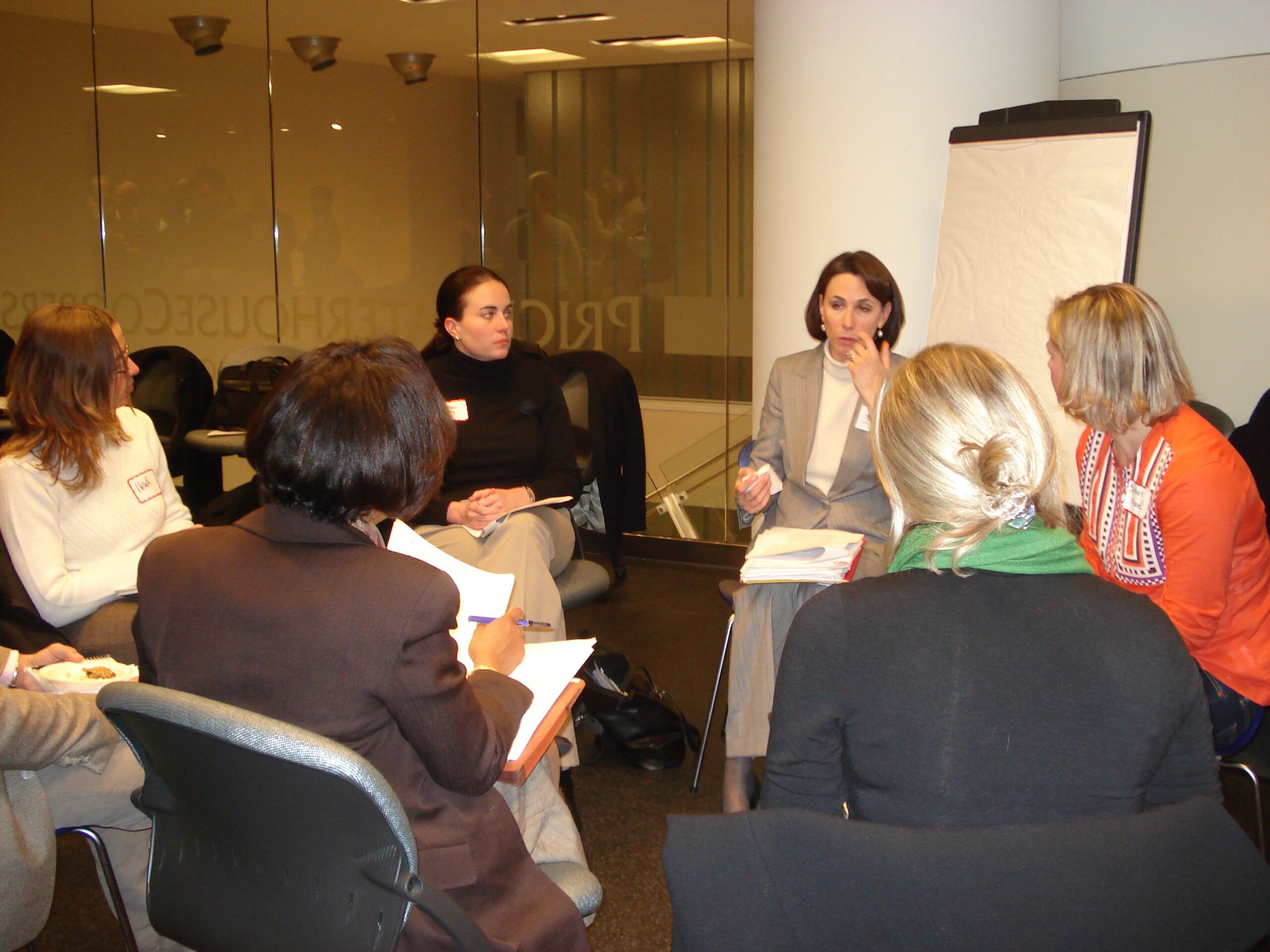
Our history
The projects were just the beginning…
In the wake of September 11, a group of Harvard Business School alumni in Washington D.C. came together around a common goal: ensure that nonprofits providing critical local community services had support. They formed a volunteer consulting alliance, recruiting fellow alumni to provide pro bono consulting to five DC nonprofits.
They quickly discovered three things:
- Free, high-quality business strategy consulting solves a critical pain point for grassroots nonprofits;
- Providing free strategy consulting to local nonprofits proved a vitalizing outlet for private sector professionals eager to make a difference in their community; and
- The lasting relationships that blossomed between and among volunteers and nonprofits were as meaningful as the projects themselves.
In short, the projects were just the beginning!
Founded in DC as “Community Service Initiative.” Launched five pro bono consulting projects with 20 Harvard Business School alumni volunteers

Rebranded as Compass
First corporate sponsorship secured
First full-time staff member hired
Incorporated as an independent 501(c)(3); Launched strategic planning projects
Launched 4-month pro bono consulting team projects
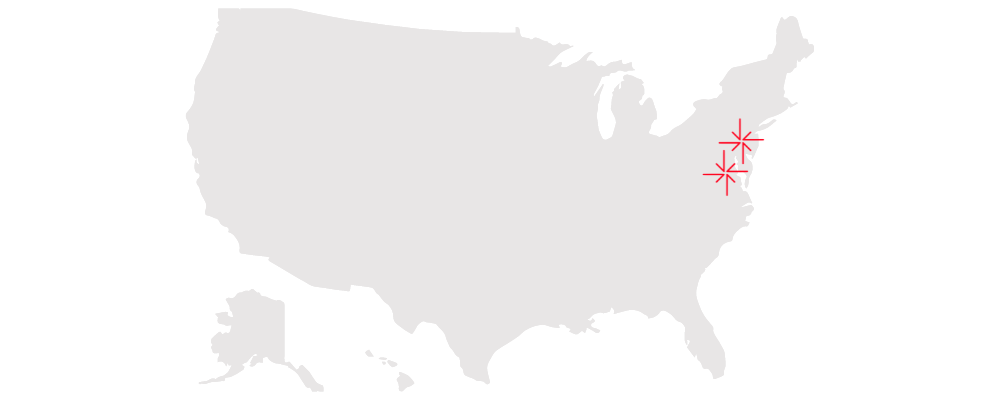
Expanded to Philadelphia; Launched On Board
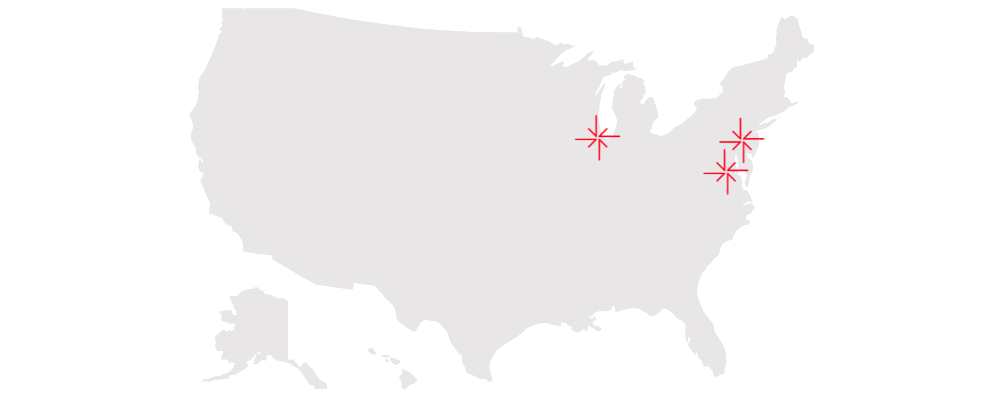
Expanded to Chicago; Surpassed 500 volunteers per year

Established the Sorkin Center
Launched On Demand; Surpassed 100 nonprofit clients per year with 180 projects

Expanded to Twin Cities
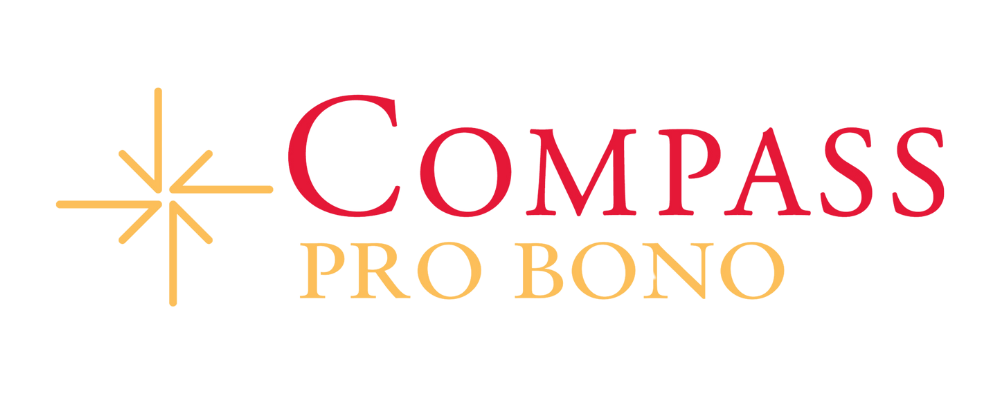
Rebranded as Compass Pro Bono
Rebranded pro bono consulting team projects as On Track
Launched Executive Coaching program
Sorkin Summit rebranded as On Course Summit
Golub Capital Board Fellows Alumni Program Established
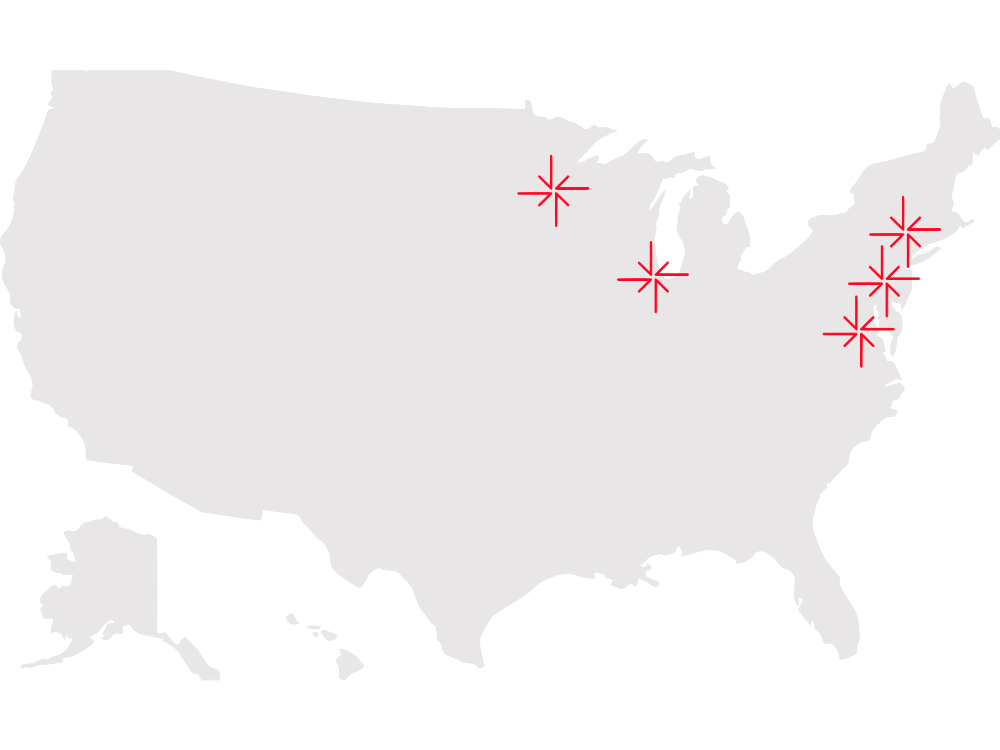
Launched programming in NYC
PROGRAM EVOLUTION
Our first 20 years
Pro Bono Consulting
Our pro bono consulting services have evolved as community needs have changed, from our original small team projects to now small team, large team, and one-on-one projects.
Our first offering – 4-6 month business strategy consulting projects for nonprofits, conducted by teams of 5 private sector volunteers – was modeled on existing business school alumni club volunteer consulting programs, including Harvard Business School’s Community Service Initiative in Boston and Stanford’s Alumni Consulting Teams. As word got out, and demand grew,
Read more
we lengthened our core consulting projects to 8 months and expanded our volunteer teams to 7-9 members. In response to volunteer and nonprofit feedback, in 2011 we split this program line in two – broader scope 8-month projects we initially called Classics and narrower scope 4-month projects we called Micros. Today, both types of pro bono consulting team projects operate under the collective name On Track.
The focus of pro bono consulting projects’ also has evolved since our first cycle. Early project criteria were very general. A 2003 Compass brochure described the focus as “management challenges such as strategic planning, operations, finance or marketing.” However, the more projects we did, the more trends we noticed in both small nonprofits’ business strategy needs and the frameworks that were most useful to them. In response, we began focusing projects into service lines most relevant to local nonprofits. We also added pre-application scoping calls for nonprofits to help them structure their business challenges in each service line into a problem statement consultants could help solve, created volunteer toolkits with the business strategy and project management tools most useful for each service line, and added service line training for volunteers.
In 2020, the COVID-19 pandemic stressed small, local nonprofits with intense fluctuations in program demand and extreme revenue unpredictability. Their leaders needed reliable, real-time business strategy guidance and support while they navigated severe operational and personal uncertainties. At the same time, many businesspeople stuck at home sought to mitigate their own pandemic disconnection and disempowerment through volunteering. In response, one month into the global shutdown, we launched On Demand, a one-on-one, 8-week pro bono consulting program.
Strategic Planning
Through our first few project cycles, we observed that nonprofits needed more strategic planning support than was feasible in a 4-6 month volunteer-led project. In response, we launched two-year-long, volunteer-led, strategic planning projects. After 37 such projects it became clear that the 2-year timeframe was unwieldy for both nonprofits and volunteers, and that strategic planning work necessitated more hands-on project management than was reasonable to expect of volunteers. We shifted focus to strategic alignment projects, focusing on the research and identification of strategic choices that precede a nonprofit’s creation of a strategic plan. In 2022, we relaunched strategic planning as a low bono service line. A paid Compass staff member leads all strategic planning projects, supported by a hand-picked team of experienced Compass volunteers.
On Board and The On Course Summit
Nonprofit board service is one of the most impactful community roles a local businessperson can play. Yet, small, local nonprofits perpetually struggle to attract private sector board members, and many businesspeople interested in board service don’t know where to start. To address this market gap, in 2014 we launched On Board, and in 2016 the Sorkin Summit. In 2025, we rebranded the Sorkin Summit to the On Course Summit.
Read more
Like many of our programs, On Board first launched in DC. It expanded to Philadelphia in 2018, Chicago in 2021, and Twin Cities in 2024.
In 2016, upon the death of Jerry Sorkin – a Corporate Executive Board senior executive and lifelong champion of nonprofit governance and board service – his colleagues seed funded the Sorkin Center for Nonprofit Governance at Compass, continuing Jerry’s legacy of making training and support available for the next generation of nonprofit leaders.
The Center’s flagship program was the eponymously-named Sorkin Summit – an annual excellence in nonprofit governance conference modeled after a program Jerry had established at CEB. It became the culminating event of On Board.
For six years, the Sorkin Center served as Compass Pro Bono’s innovation hub, allowing us to explore different ways to engage business leaders in local nonprofits’ immediate operational challenges. Programs included Compass Connect Conversations – through which nonprofit leaders managing through the chaos of COVID-19 met with private sector business leaders experienced in managing people and finances through tumultuous times – and DEI cohorts – which provided nonprofit leaders training and one-on-one mentoring from private sector DEI leaders in the wake of George Floyd’s murder. In 2023, we sunset the Center and integrated its approach and programs into our core operations. In 2025, we rebranded the Sorkin Summit to the On Course Summit.
“Our goal is to help these nonprofit leaders and their organizations reach their full potential so they can have an even greater impact in our communities.”
Jerry Sorkin
GEOGRAPHIC EXPANSION
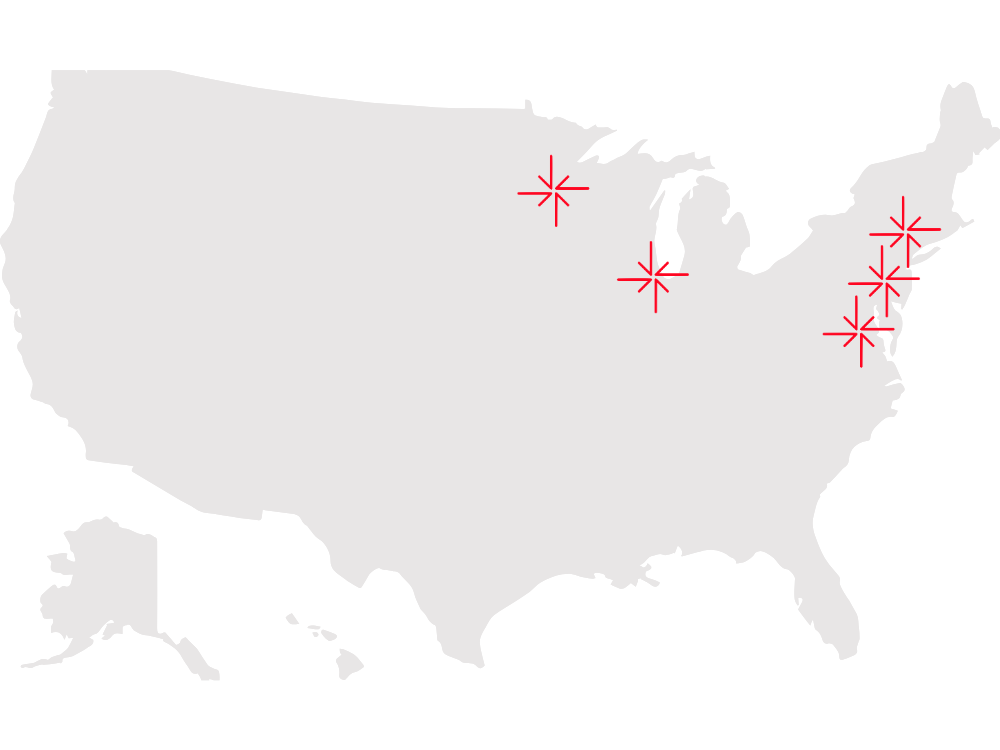
Our expansion has been organic – led by volunteers who had experienced the power of our work and wanted to bring it to another city they cared about.
Philadelphia (2013)
The United Way and Philadelphia Foundation provided funding for our four inaugural projects. Learn more about our work in Philadelphia.
Chicago (2016)
A long-standing DC volunteer and board member with Chicago roots spurred our expansion in 2016. Learn more about our work in Chicago.
Twin Cities (2021)
Chicago volunteer, Mark Lewry, helped launch our Twin Cities location after retiring there in 2021. Learn more about our work in the Twin Cities.
New York City (launching 2026)
Founding NYC Board Chair David Blair helped to spearhead our expansion into New York City after learning about the Compass Pro Bono model. Learn more about our work in New York City.
Brand Evolution
We launched our first projects under the name Harvard Business School Community Service Initiative. As alumni from other MBA programs swelled our volunteer corps, we changed our name to Compass Volunteer Consulting Alliance. Our founders chose the imagery of a compass to reflect our founding mission of helping nonprofits find their way through business challenges. By the time we incorporated as an independent 501(c)(3), we’d colloquially become known simply as Compass.
In 2023, we officially rebranded to Compass Pro Bono. The phrase ‘pro bono’ comes from the Latin pro bono publico, which means ‘for the public good.’ This addition reflects not only our evolved mission of empowering thriving, equitable, resilient communities through forging lasting cross-sector ties, but also our status as an independent, mission-focused nonprofit.
Strategic Inflection Points
When our founders – Burgess Levin, Gus Bessalel, Hilary Joel, Melissa Williams, and Suzanne Cox – launched our first round of projects, they weren’t thinking about building a lasting organization; they simply wanted to be useful in their community during a deeply traumatic time. Volunteers’ and nonprofits’ transformative experiences that first year inspired them to run another round of projects, then another, and another. The first big inflection point came when program demand exploded beyond the capacity of volunteer staff.
Read more
For six years, Compass operated as an entirely volunteer-run initiative. In 2007, we hired our first paid staff member and incorporated as an independent 501(c)(3) the following year.
The next big inflection point arrived a few years later, with the opportunity to expand geographically. Our own internal “Compass project” convinced the team that the model that worked so well in DC could work in other communities, and our first expansion site, Compass Philadelphia, was born in 2013.
Although all Compass sites have always been part of that original 501(c)(3), for a long time, each Compass city’s local team and board operated largely independently of the other cities, with the DC board providing collective oversight. By 2020, it was clear that a more integrated national structure and strategy were needed to sustain impact and support growth. Receiving a sizable capacity-building grant from The Clark Foundation allowed us to invest in our own operational evolution.
In 2022, we split the national board from the DC board and reset our governance structure under the leadership of national board chair, Cathy Bernasek, one of our first volunteers. Today we have an independent national governing board supported by local advisory boards with specific responsibilities for guiding local programming and local partnerships. To ensure that what we do and how we do it is informed by local needs, our integrated board structure facilitates close collaboration on initiatives of collective importance.
In 2023, we reorganized operations into what we call One Compass. We know that our biggest impact comes from local-to-local connections – local volunteers working with local nonprofits serving the local community. So we freed up our city-based staff to spend all of their time in and with the local community, supported by a national team handling behind-the-scenes operations not requiring local knowledge. We integrated program streams into a connected suite of services, enabling us to offer all of our programs to local nonprofits and local volunteers in all of our locations. We also centered our commitment to our most important community impact – the lasting ties forged through our programs.

